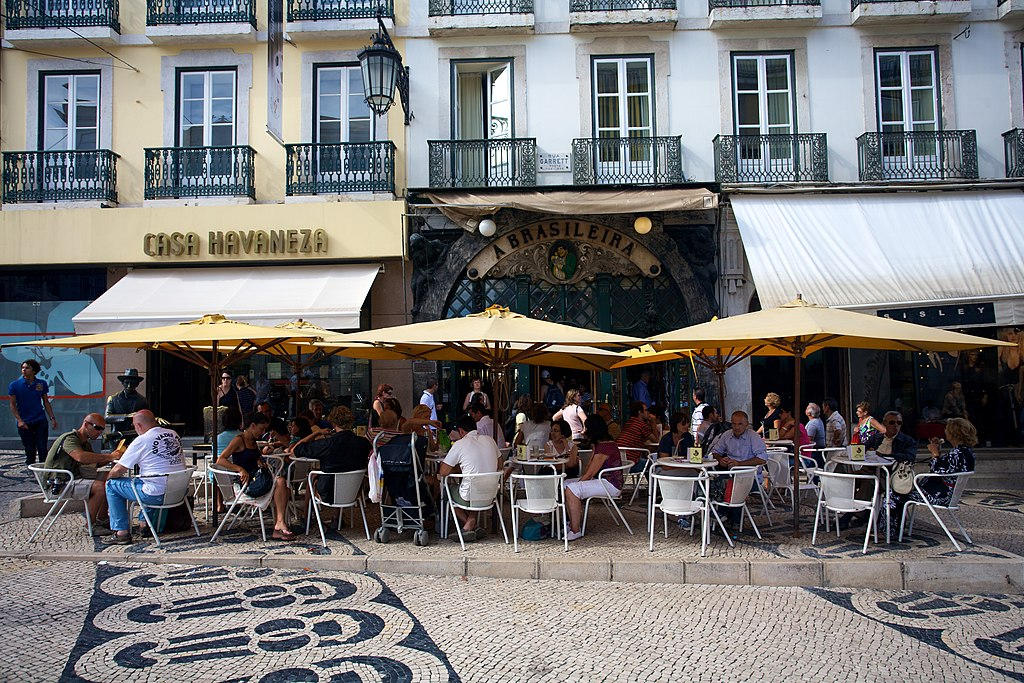Founder Adriano Telles, originally from Alvarenga, Arouca, had emigrated to Brazil and established a successful commercial venture named "Ao Preço Fixo." Having amassed wealth through agricultural production, particularly coffee, Telles returned to Portugal in the early 20th century. He created a network of coffee distribution points, known as "Brasileiras," importing coffee predominantly from Brazil, renowned for producing some of the world's finest beans.
It was at Café A Brasileira that the term "Bica" originated. Among various versions, it is believed to be an abbreviation of "beba isto com açúcar" (drink this with sugar), an encouragement to make the newly introduced coffee more pleasant for customers while fostering their habit and creating a ritual. Another version suggests that the name derived from the fact that coffee was served directly into cups from the tap-like faucets ("bicas") of the coffee machines. Customers felt that the intermediary passage through a coffee pot diminished the flavor, leading to the adoption of the term "bica" as a synonym for coffee, a practice that continues to this day.
Adriano Telles was not only a successful businessman but also a man of culture with a passion for music and painting. He founded the Alvarenga Band, financing their initial instruments, and transformed Café A Brasileira into the first modern art museum in Lisbon. Telles had notable connections with Brazil, where he dabbled in the press and politics, serving as a City Councilor in the city where he married and settled. In 1908, he remodeled the café, creating the iconic cafetaria we know today.
Fernando Pessoa, one of the most renowned Portuguese poets, had a profound connection with Café A Brasileira. Born on June 13, 1888, in Lisbon, Pessoa spent his childhood in South Africa, where he received a British education that immersed him in the English language and led to his translations of literary works by authors such as Shakespeare and Edgar Allan Poe. Upon returning to Lisbon, Pessoa frequented Café A Brasileira, where he engaged with artists and writers in the city's vibrant intellectual and literary circles. The café honored Pessoa's centenary with a statue created by the esteemed artist Lagoa Henriques.
Lisbon.vip Recommends
Today, Café A Brasileira stays true to its founding purpose by continuing to import coffee, with a particular emphasis on the renowned beans produced in Brazil. It takes pride in maintaining the excellence of the entire production process, from cultivation to roasting, ensuring a high-quality coffee experience for its visitors.
Café A Brasileira stands as a living testament to Lisbon's vibrant cultural and intellectual history. Its architectural charm, cultural heritage, and association with notable figures like Adriano Telles and Fernando Pessoa make it an iconic landmark in the city. As visitors indulge in a cup of coffee at Café A Brasileira, they partake in a tradition that has spanned over a century, immersing themselves in the artistic and intellectual ambiance that has made this café a timeless symbol of Lisbon's cultural heritage.



